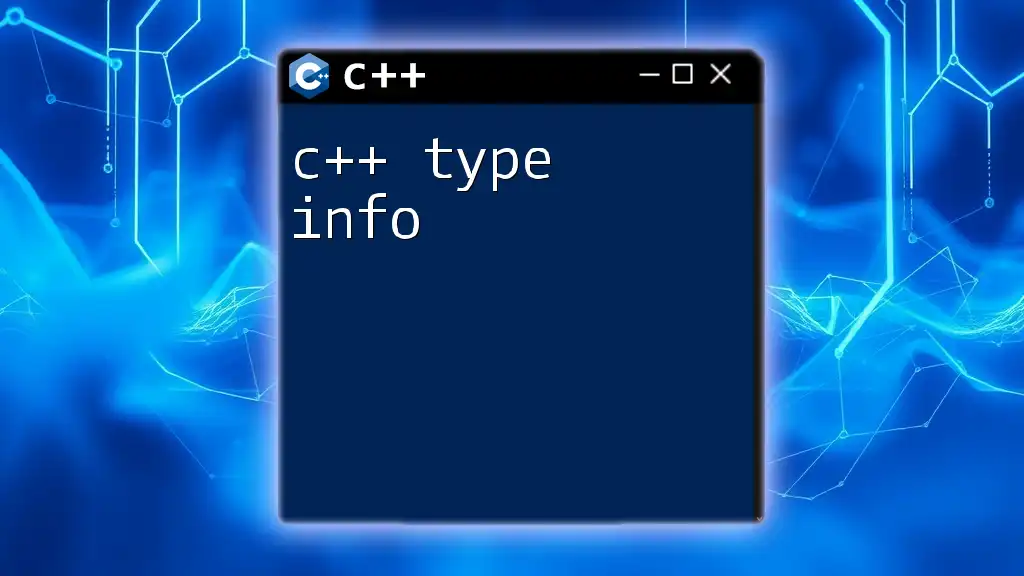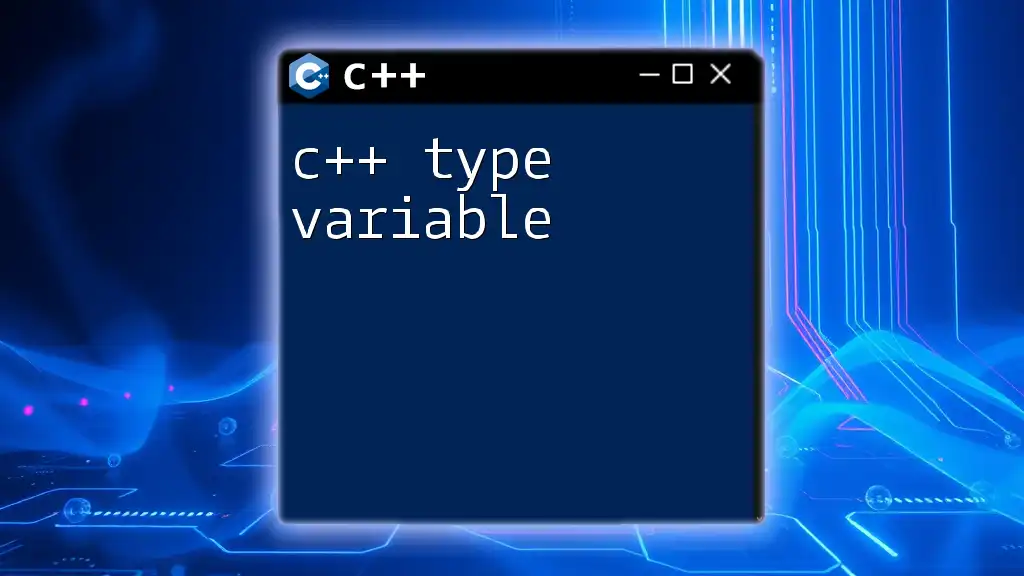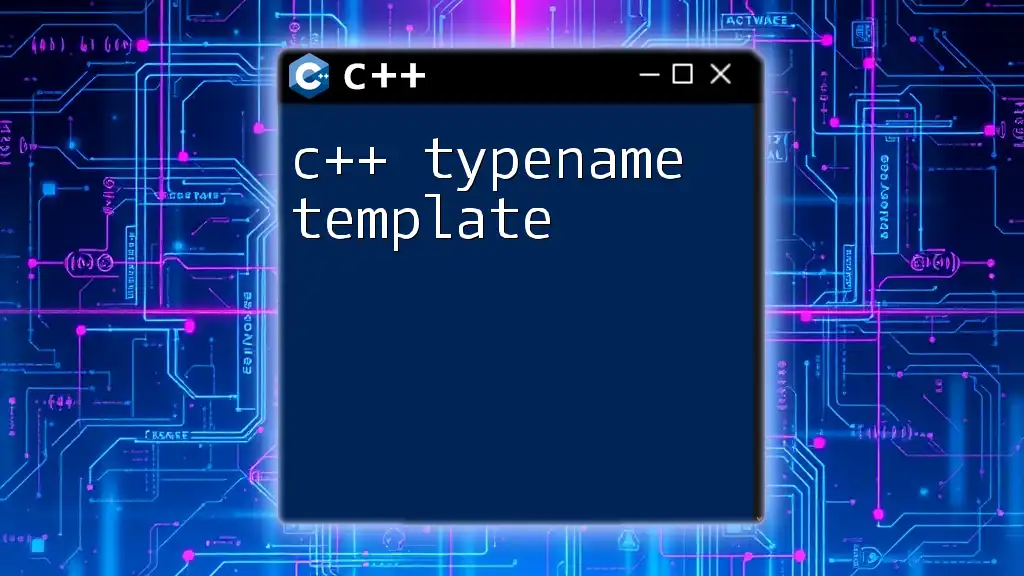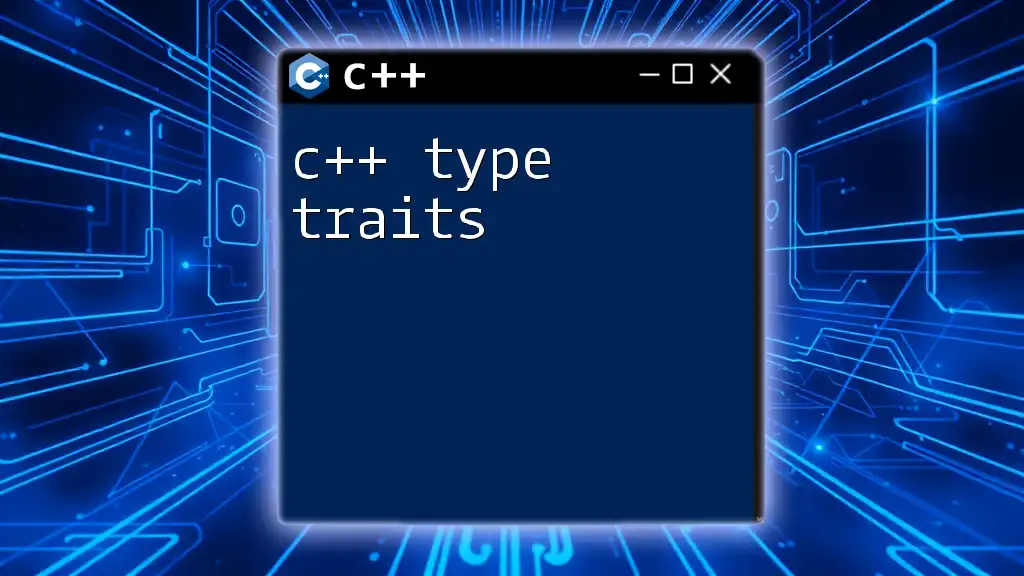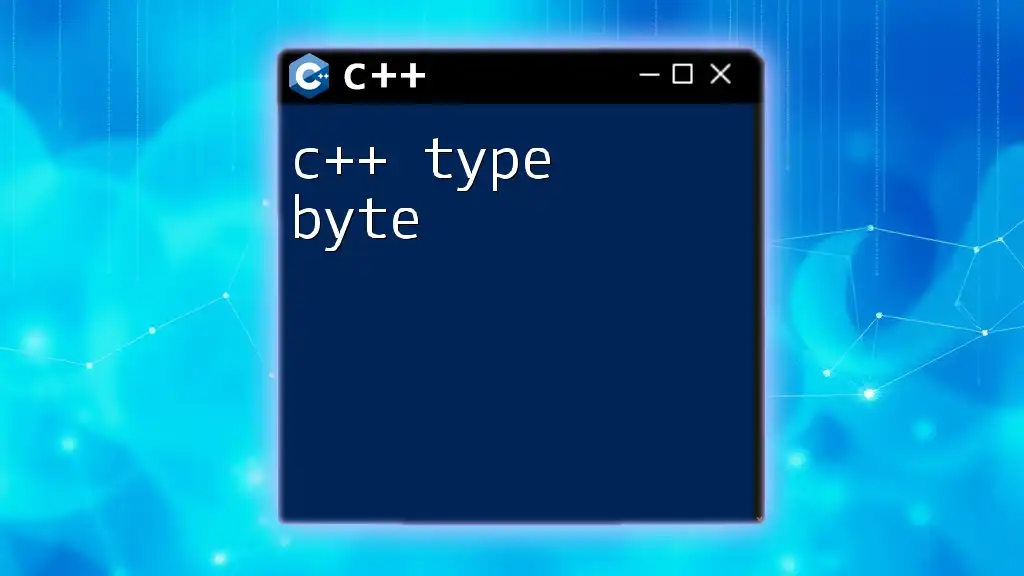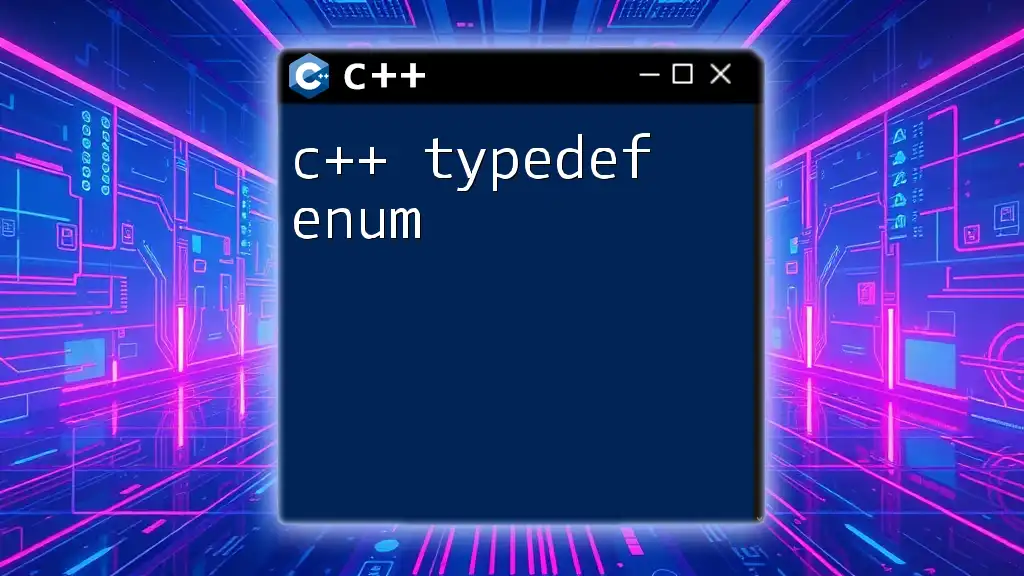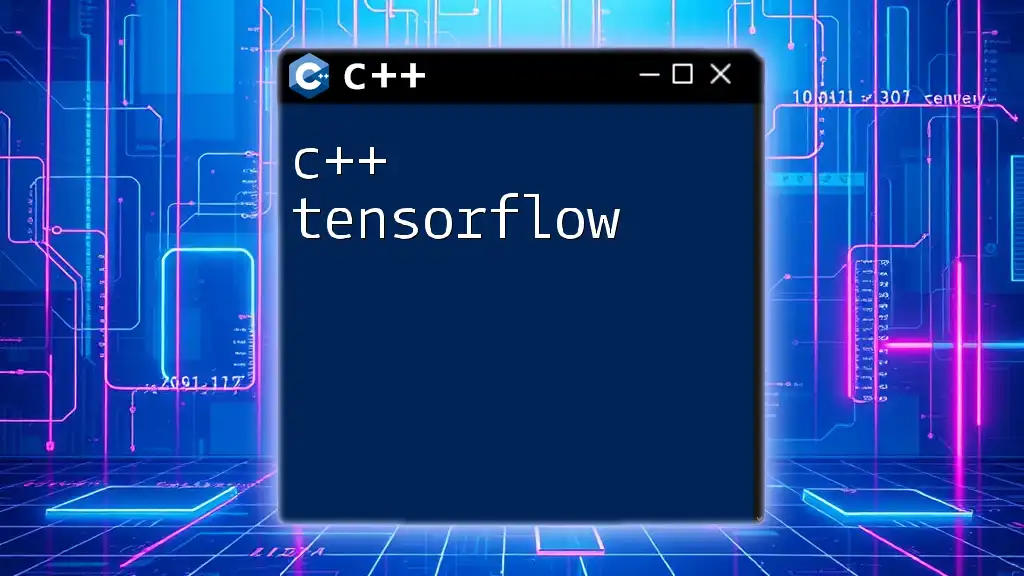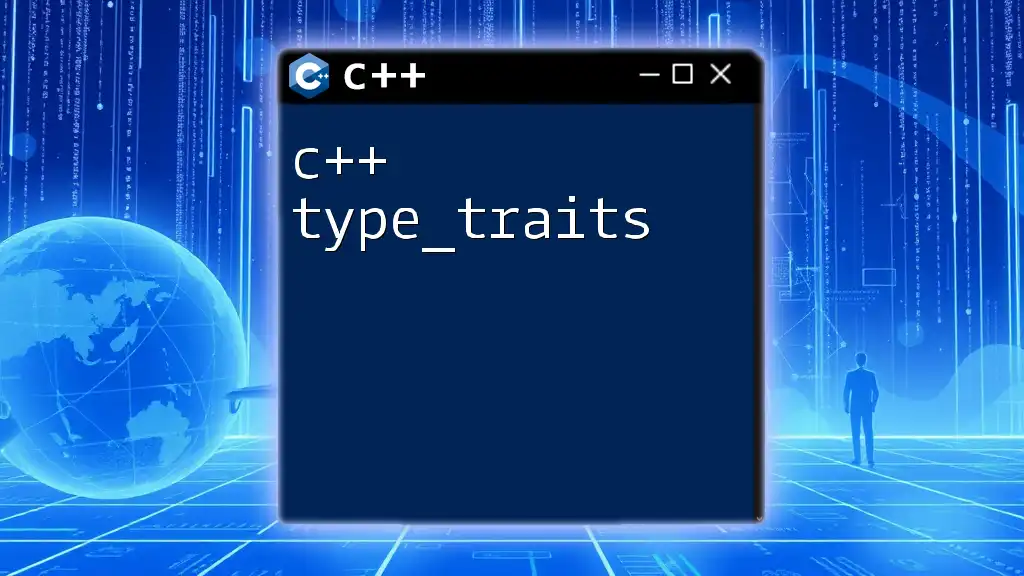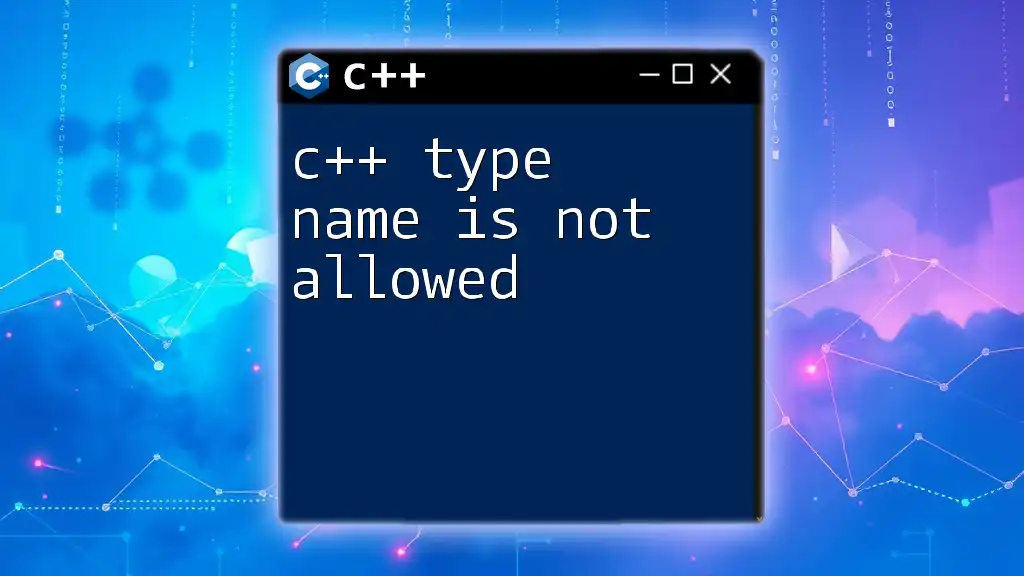C++ type info refers to the ability to retrieve and manipulate type information at runtime, typically using the `typeid` operator, which is part of the C++ Runtime Type Information (RTTI) feature.
Here's a code snippet demonstrating its usage:
#include <iostream>
#include <typeinfo>
class Base { virtual void dummy() {} }; // Polymorphic base class
class Derived : public Base {};
int main() {
Base* b = new Derived();
std::cout << "Type of b: " << typeid(*b).name() << std::endl; // Outputs the name of the derived type
delete b;
return 0;
}
Understanding Type Identification
What is `typeid`?
The `typeid` operator in C++ is a powerful tool that helps you determine the exact type of an expression at runtime. This is especially useful when dealing with polymorphic types where base class pointers may point to derived class objects. The `typeid` operator can be utilized on both fundamental types (like `int`, `char`, etc.) and user-defined types.
For instance, consider the following code snippet which demonstrates the use of `typeid` with a built-in type:
#include <iostream>
#include <typeinfo>
int main() {
int x = 5;
std::cout << "Type of x: " << typeid(x).name() << std::endl;
return 0;
}
In this example, when executed, the output will show the type of `x` as `int`. The `name()` method of `std::type_info` provides a human-readable representation of the type.
Type Information for Polymorphic Types
When utilizing polymorphic types (classes that use virtual functions), `typeid` provides accurate type identification. In this context, using `typeid` on a base class pointer gives you the type of the derived class object instead of the type of the pointer.
Consider the following code snippet featuring a base class and a derived class:
#include <iostream>
#include <typeinfo>
class Base {
virtual void foo() {}
};
class Derived : public Base {};
int main() {
Base* b = new Derived();
std::cout << "Type of b: " << typeid(*b).name() << std::endl;
delete b;
return 0;
}
Here, the output will indicate that `b` is of the type `Derived`. This is crucial when attempting to access specific properties or methods of a derived class.

Exploring TypeInfo Class
What is `std::type_info`?
The `std::type_info` class provides comprehensive information about C++ types. When you use `typeid`, it returns a reference to an instance of `std::type_info` that contains detailed information about the requested type.
Key member functions include:
- `name()`: Returns the name of the type represented.
- `hash_code()`: Provides a unique identifier for the type.
- `before()`: Compares two `std::type_info` instances.
The `name()` Method
The `name()` method of `std::type_info` returns the type name as a C-style string. However, it’s important to note that this representation is compiler-dependent. Thus, the output can vary across different compilers.
Here's a concise demonstration:
#include <iostream>
#include <typeinfo>
struct A {};
int main() {
std::cout << "Type of A: " << typeid(A).name() << std::endl;
return 0;
}
While you might expect the output to always be `A`, compilers may produce varied representations (like `1A` in GCC).
Comparing Types with `before()`
The `before()` method allows you to compare the order of two types. It can help assess inheritance hierarchies or the ordering of types in a generic programming context.
In this example, we can compare the `Base` and `Derived` classes:
#include <iostream>
#include <typeinfo>
class Base {};
class Derived : public Base {};
int main() {
std::cout << std::boolalpha;
std::cout << "Is Base before Derived? " << typeid(Base).before(typeid(Derived)) << std::endl;
return 0;
}
The output will clarify whether `Base` precedes `Derived` in the type hierarchy, aiding in understanding inheritance structures in complex applications.
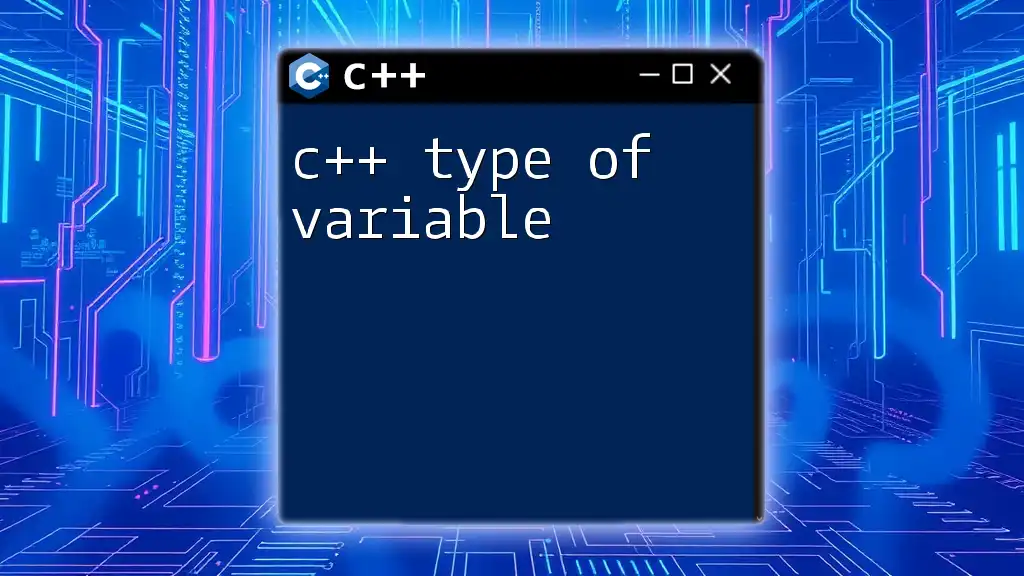
Practical Applications of Type Info
Runtime Type Identification (RTTI)
Runtime Type Identification (RTTI) is a facility that allows the type of an object to be determined at runtime. It plays a crucial role in enabling polymorphism and provides mechanisms such as `typeid` to ascertain an object's type to ensure functionality is appropriate based on the actual type of derived objects.
Using RTTI is particularly useful in contexts like frameworks and libraries where you may not have explicit knowledge about the types passed around. This capability provides the flexibility to write more generic and reusable code.
Type Safety and Error Handling
Implementing type checks can enhance type safety within applications, potentially reducing runtime errors. By leveraging type information, you can enforce proper usage and handle mismatches effectively.
For instance, using the `typeid` operator can help you guard against errors:
#include <iostream>
#include <stdexcept>
#include <typeinfo>
void checkType(const std::type_info& expectedType, const std::type_info& actualType) {
if (expectedType != actualType) {
throw std::runtime_error("Type mismatch");
}
}
// Example usage
In the above snippet, the `checkType` function checks if the actual type of an object matches the expected type, throwing an exception if they don't match. This style aids debugging and error handling through type checks, making your programs robust.
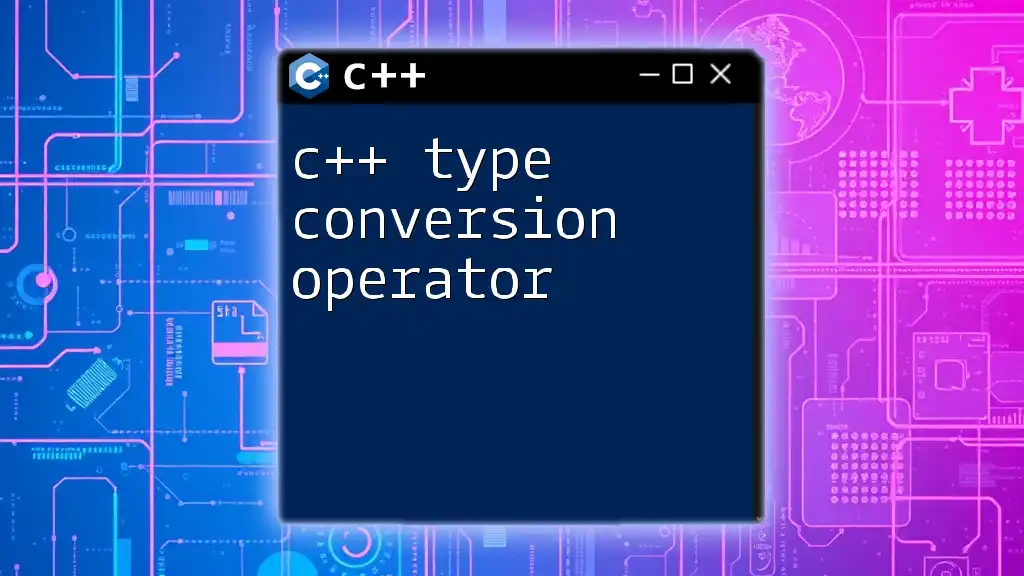
Conclusion
C++ type info encapsulates a robust mechanism for runtime type identification, enhancing the language's already powerful type system. By understanding and leveraging typeid, `std::type_info`, and RTTI, developers can write more maintainable and error-free code while improving type safety and debugging experiences. Embracing these features allows for the creation of efficient applications, maximizing the potential of polymorphism in C++.
Type information is not just a feature but a cornerstone that every C++ developer should master to become proficient in the language's advanced capabilities. As you advance your skills, exploring C++'s sophisticated type system and its implications will be invaluable for your programming journey.
Additional Resources
- For deeper insights, refer to the [C++ Standard Documentation](https://en.cppreference.com/w/cpp/language/typeid) on type information.
- Consider exploring advanced topics in C++ related to templates and type traits to further enhance your understanding of type systems in C++.

